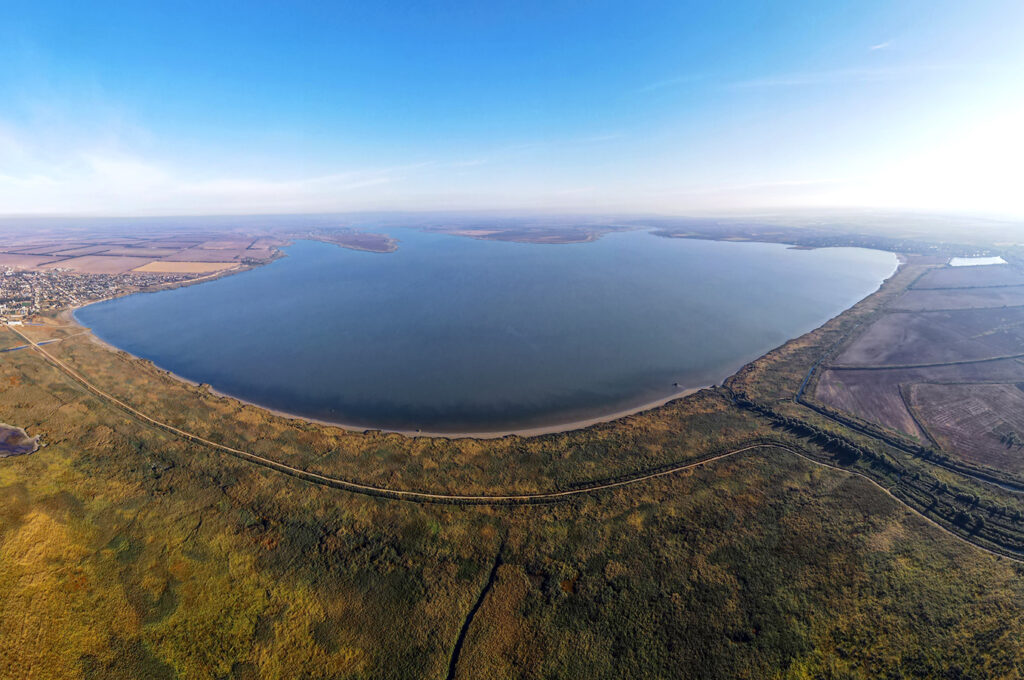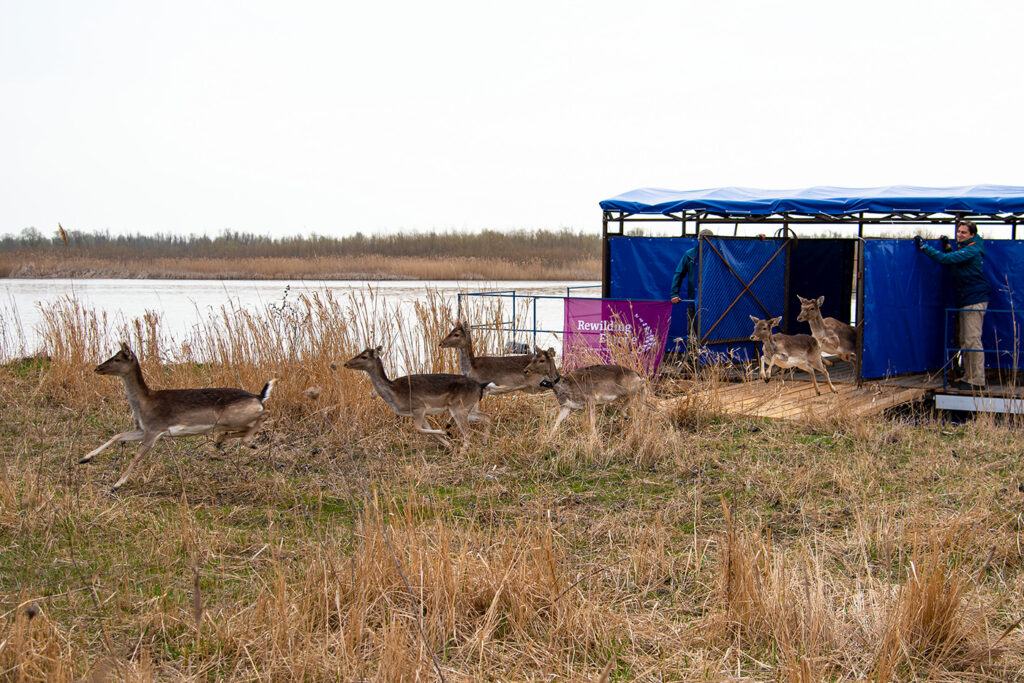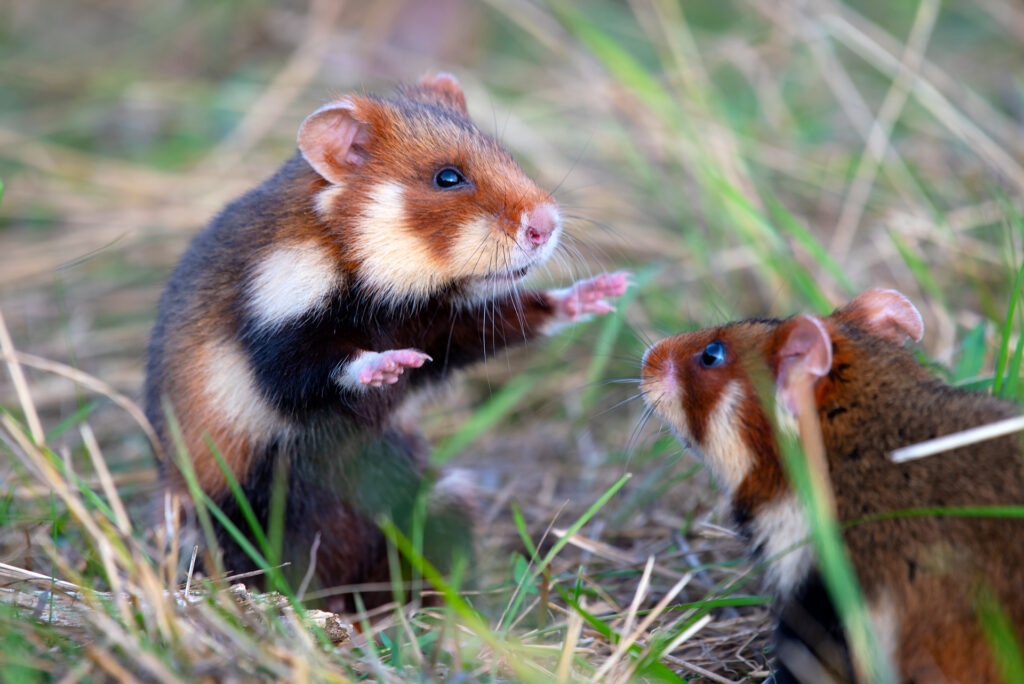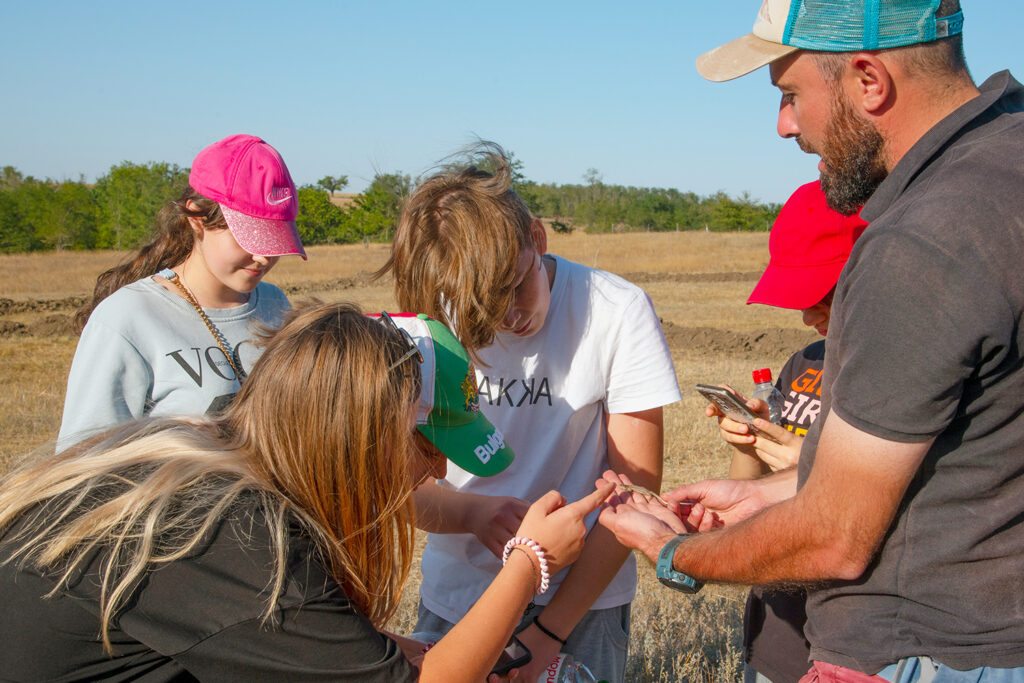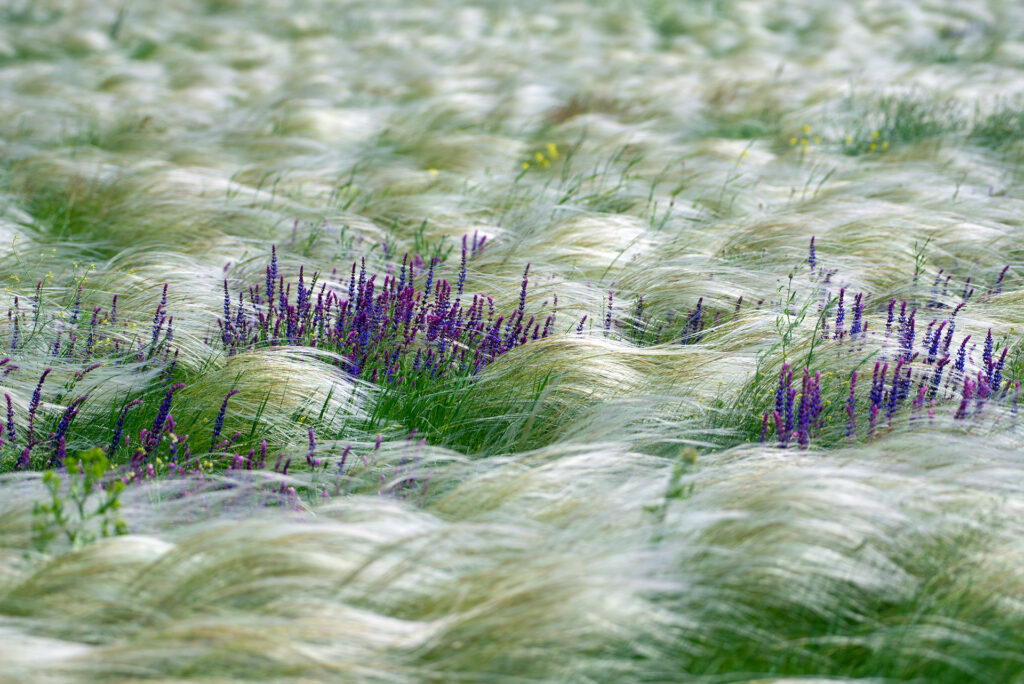Despite the challenges posed by the ongoing war in Ukraine and associated restrictions, our team, in collaboration with partners, persevered in the mission to restore and rewild the magnificent Danube Delta region throughout 2023. From wetland restoration to wildlife comeback and nature education, the year was punctuated by numerous rewilding successes.
On the Romanian side of the delta, significant strides were taken, laying the groundwork for promising rewilding initiatives and outcomes in the near future. The ongoing efforts are progressing, and we look forward to sharing more details soon.
We’re delighted to recap the highlights of the past year with you and anticipate continuing our joint rewilding journey in the coming year.
Danube Wetlands and Lakes restoration
We have been diligently working to reverse environmental damage in the Danube Delta caused by 20th-century engineering projects. Focused on restoring natural water flow, recent efforts in collaboration with the Izmail Department of Water Resources reconnected the Danube River and Katlabuh Lake via the Staronekrasivski Wetlands, rejuvenating an 8,500-hectare wetland area, and also improved water exchange between the Danube and Kartal and other lakes. These initiatives are enhancing water quality, fostering biodiversity, and mitigating climate change by rewetting large marshland areas. Local communities, reliant on clean water and fish, are already experiencing the positive impacts of these restoration projects.
Fallow and red deer make a comeback to the outer delta
Together with the Danube Biosphere Reserve, we released 20 fallow deer and 20 red deer on Bilgorodskiy Island, a 2200-hectare expanse in the Ukrainian Danube Delta. Originating from Western Ukraine, these deer covered about 1000 km to settle in this island paradise, part of the Danube Biosphere Reserve where the delta meets the Black Sea. These deer will play a crucial role in shaping a biodiverse, semi-open mosaic landscape through their grazing and browsing activities. Their presence will contribute to the maintenance of meadows, pools, and a variety of plants. Additionally, their selective feeding will help control excess vegetation, reducing the risk of wildfires associated with climate change. Read more and watch the video.
Second group of hamsters released on the Tarutino Steppe
Rewilding Ukraine is dedicated to revitalizing the Tarutino Steppe, with ongoing efforts focused on the reintroduction of European hamsters. Fifteen hamsters, comprising eight females and seven males, were recently released in the Danube Delta rewilding landscape, marking the second phase of the reintroduction program. Collaborating with Kyiv Zoo and the Tarutino Steppe Nature and Ethnographic Park, the initiative aims to restore local food webs, enhance biodiversity, and promote nature-based tourism. The diminutive rodents, once widespread in Ukraine, will be initially kept in a 600-square-meter enclosure for acclimatization before forming a colony. Future releases are planned, striving to establish hamster colonies across the Tarutino Steppe. Read more and watch the video.
Education campaign connects young people with nature in the Danube Delta
The Living Danube Delta education campaign, that involves 16 schools in Ukraine, Romania, and Moldova, is fostering a connection between youth and the natural wonders of the delta, emphasizing the significance of rewilding. Vital for the planet’s future, engaging young minds in the rewilding movement creates eco-conscious individuals committed to preserving and restoring habitats. The multifaceted program includes online seminars, extracurricular classes, landscape visits, photo training, contests, a club, and a camp. The Danube Delta Rewilders Club unites students passionate about the delta’s nature, contributing to the broader understanding of rewilding’s positive impact. The summer Pelican education camp saw over 50 participants from four countries come together to learn more about Dalmatian pelicans and rewilding.
An important step towards preserving a unique steppe
On June, key stakeholders including Borodino Community in Ukraine convened for a roundtable in a consultation process to create the Budzhak Steppes National Nature Park. Rewilding Ukraine and the Centre for Regional Studies fostered this consultation process and contributed expertise and financial support to the initiative. With a dedicated team of scientists, we have prepared a scientific rationale for the park’s establishment through a public consultation process. The national park follows up on our joint efforts with the community and the Frumushyka-Nova Cluster of restoring 500 hectares of Tarutino steppe areas, and reintroduction of species like kulan, European fallow deer, steppe marmot, and hamster. Notably, this year witnessed the birth of five young kulans, a promising milestone for species recovery. Learn more.
The Rewilding team of the Danube Delta expresses heartfelt gratitude to our partners, experts, and contractors for their collaborative efforts that led to these accomplishments. Special thanks to all our supporters for their invaluable assistance during these challenging times. Looking ahead, we aspire to accomplish even more together in the coming year to foster a healthier and wilder Danube Delta!
The rewilding efforts in the Danube Delta were made feasible through the generous financial support of the Endangered Landscapes and Seascapes Program, the LIFE program of the European Union, and the European Wildlife Comeback Fund of Rewilding Europe.
